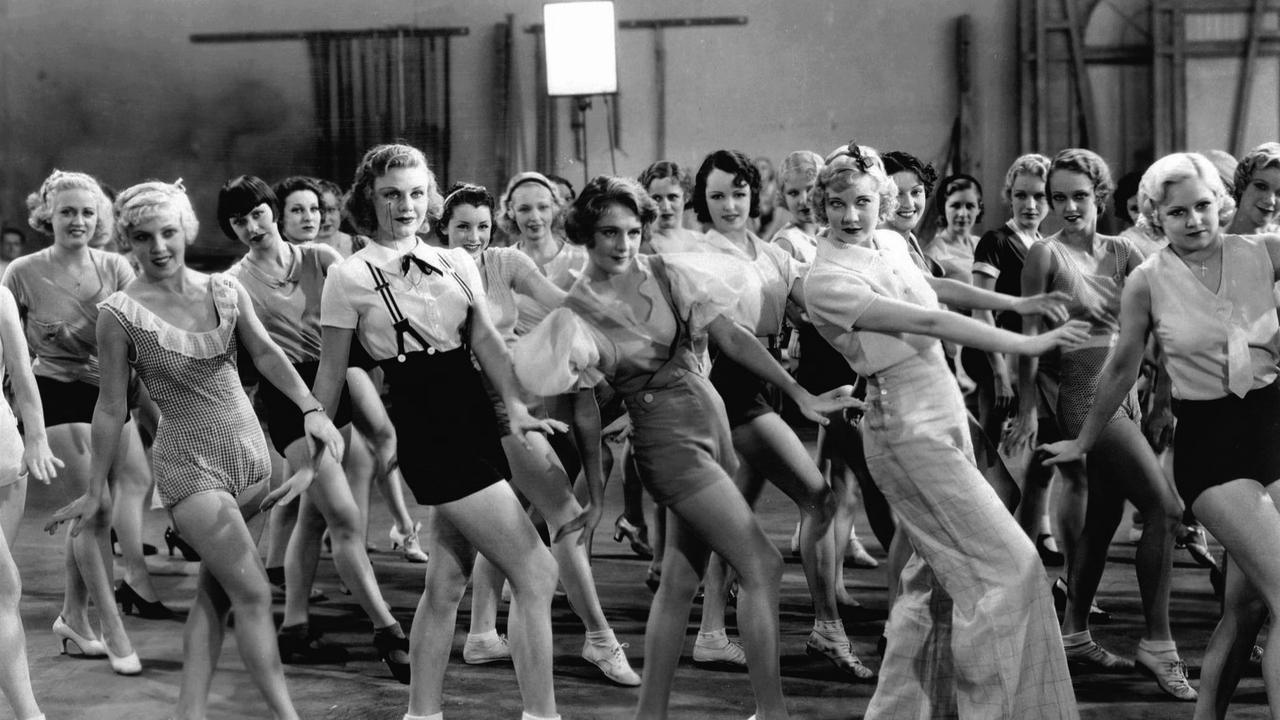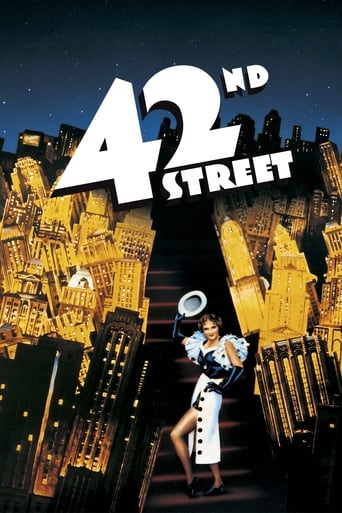Inclubabu
Plot so thin, it passes unnoticed.
Rijndri
Load of rubbish!!
Comwayon
A Disappointing Continuation
Invaderbank
The film creates a perfect balance between action and depth of basic needs, in the midst of an infertile atmosphere.
richspenc
When we see Ruby Keeler being introduced to the film, she gets teased by a few girls who lead her to almost walk into the men's room, and then to walk in on Dick Powell. Powell takes an immediate fondness to Ruby, just like in the other 1930s films with Powell and Ruby. I can never blame Powell, Ruby is beautiful and wonderful. We also meet beautiful girls Una Merkel and Ginger Rogers. Ginger is.'Anytime Annie', who "never says no except for once when she didn't hear the question". Una looked different in this film from some of her other films such as "Born to dance" and "Broadway Melody 36", not just younger (since this film came earlier from the other mentioned two) but she just looked sort of different altogether in this film. She was still very pretty just like in her other films. I loved her fun, quirky character in this film.Warner Baxter, who was warned by his doctor to take it easy, ignores him and finds his number one goal and dream, is to put on a dazzling, amazing show. If he can go through with that, nothing else matters. He is a very determined and aspiring director. The main story with rehearsals was very good in this film, along with good humor too. The musical numbers were wonderful. 42nd street, Shuffle off to Buffalo (with Ginger and Una sitting on a top bunk eating a banana), You're young and healthy , and You're getting to be a habit with me. Bebe Daniels likes Guy Kibby (I like the "things can never be the same now" bit), until Bebe calls Guy "you sucka!" while drunk at a party. I liked the passion between Ruby and George Brent (I think that this was the only of Busby's 1930s films where Ruby eloped with someone besides Powell. I cannot blame either of those guys though for being fond of lovely Ruby.I also found amusing near the beginning when Ruby was accepted into tryouts with the help of Powell, and Una and Ginger. We see them all throughout a couple of tryout scenes, then we get the scene where one of the slightly uppity girls is showing herself to the producers, and Ginger says "and is her homework tough", with Ruby laughing with Ginger and Una still standing amongst them. Then the film cuts to a moment after some more tryouts that weren't shown in the film, and now Ruby was asleep on a nearby bench while Warner was huffing about them being a girl short. Powell mentioned how Ruby was cut (somewhere between the previous shown tryout scenes and the present scene). Warner and his assistant call out to Ruby to wake up and all the girls on stage giggle. For some reason, I found all that very amusing, I liked that. I don't know why Ruby was cut when everyone seemed to like her the first time they saw her, and then they all looked quite happy to have her back (including Una I could see). I was happy to see Ruby back too.I loved the passionate moment from Warner to Ruby right before going on stage "You're going out an aspired actress and you're coming back a star!" His predictions were right on. Ruby shined beautifully through her songs, especially "42nd Street". But Ruby was wonderful through all.There's also a few cheeky lines in this film such as "you got the busiest hands" and "I'm sitting on a flagpole" from Una after a guy had crossed bounds with her a bit more than she wanted. Also Una doing an implicating gesture with her mouth after seeing Ruby and Powell together. Cheeky Una.
runamokprods
This has it's a lot of fun moments, including 15 minutes worth of terrific, over-the-top Busby Berkeley dance numbers, some snappy, sexy pre-code dialogue, and impressive early use of crane shots.Yes, it's mostly awkwardly acted. And the whole thing is a string of clichés from start to finish. But, this film helped establish those clichés, and is pretty darn enjoyable in a corny, silly way.Many critics consider it a classic, and it is indeed important in Hollywood history.That said, I can't quite bring myself to say "classic", but I did smile a lot, especially on 2nd viewing.
wes-connors
Suffering from the Great Depression and a bad ticker, Broadway director Warner Baxter (as Julian Marsh) desperately needs "Pretty Lady" to be a hit musical. When leading actress Bebe Daniels (as Dorothy Brock) gets tipsy and twists her ankle, newcomer Ruby Keeler (as Peggy Sawyer) must step into the starring role. "You're going out a youngster, but you've got to come back a star!" demands Mr. Baxter. This fresh look at an old story made Ms. Keeler a star and likewise advanced young Dick Powell (as Billy Lawler). Much has been said of Busby Berkeley's brilliantly staged production numbers. They are spectacular. It should also be noted that Lloyd Bacon's direction and Sol Polito's photography shine throughout. The cast is delightful, the songs are perfect, and pretty legs are celebrated like nobody's business.********* 42nd Street (3/8/33) Lloyd Bacon ~ Warner Baxter, Ruby Keeler, Dick Powell, Bebe Daniels
dougdoepke
No need to recap the plot.Wow, Julian (Baxter) is some kind of slave driver, working those poor chorus girls half to death. But then he has to be tough to come up with that boffo climax. It's worth waiting for even though it's a long time coming. Yes indeed, the carnally obsessed Berkeley manages a number of flowering O's, but what I really like is the panoramic slide down 42nd Street, with all the acts getting about 5-seconds, even the Apache dancers. In fact, the entire number is a musical dynamo of choreography and editing.The rest of the movie is okay. Too bad the dimpled Keeler and her handsome swain Powell don't get more screen time. They're a luminescent pair; no wonder they made a number of musicals together. Also, they're those tempting glimpses of a young, wise-cracking Ginger Rogers and the comical Una Merkel. However, things slow down with Daniels, and come to dead stop with Brent. His woefully deadpan expression suggests he's wandered onto the wrong set.I expect much of the purpose behind the narrative scenes is to de-romanticize Broadway musicals. That way we see just how much work they really are. If so, they succeed in spades. And catch that sometimes moody photography, along with a lonely exhausted Julian at fadeout. But none of that takes anything away from the show-stopping finale.

